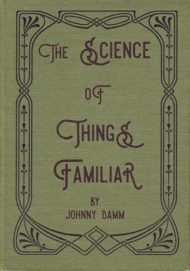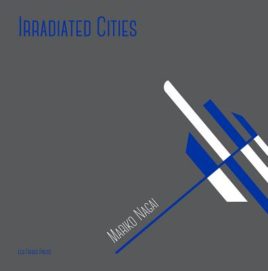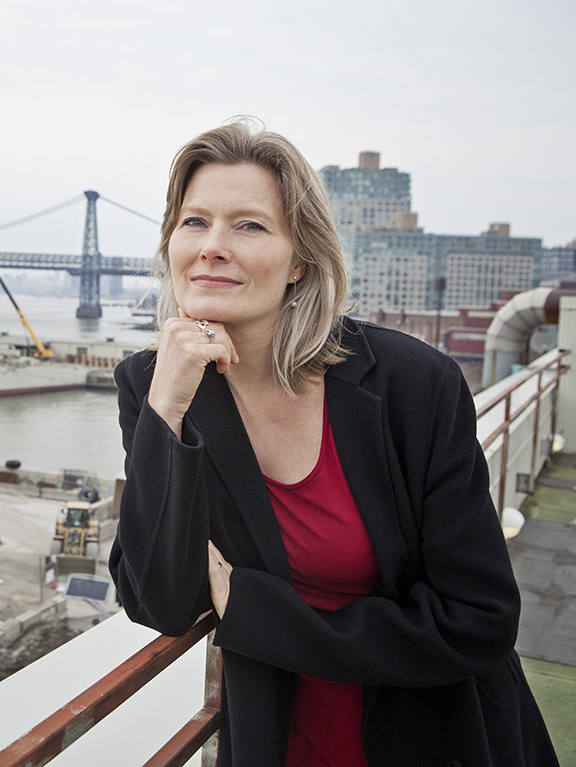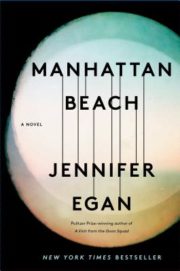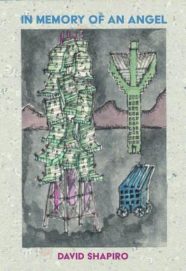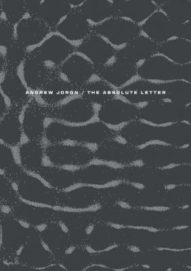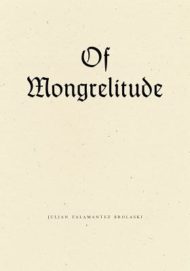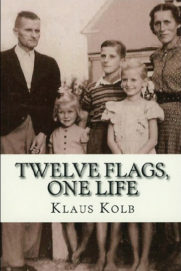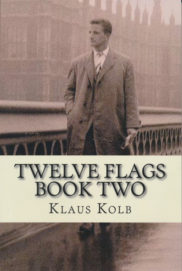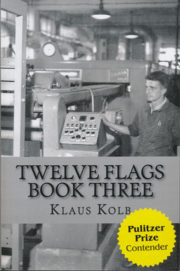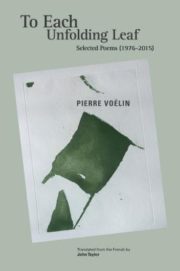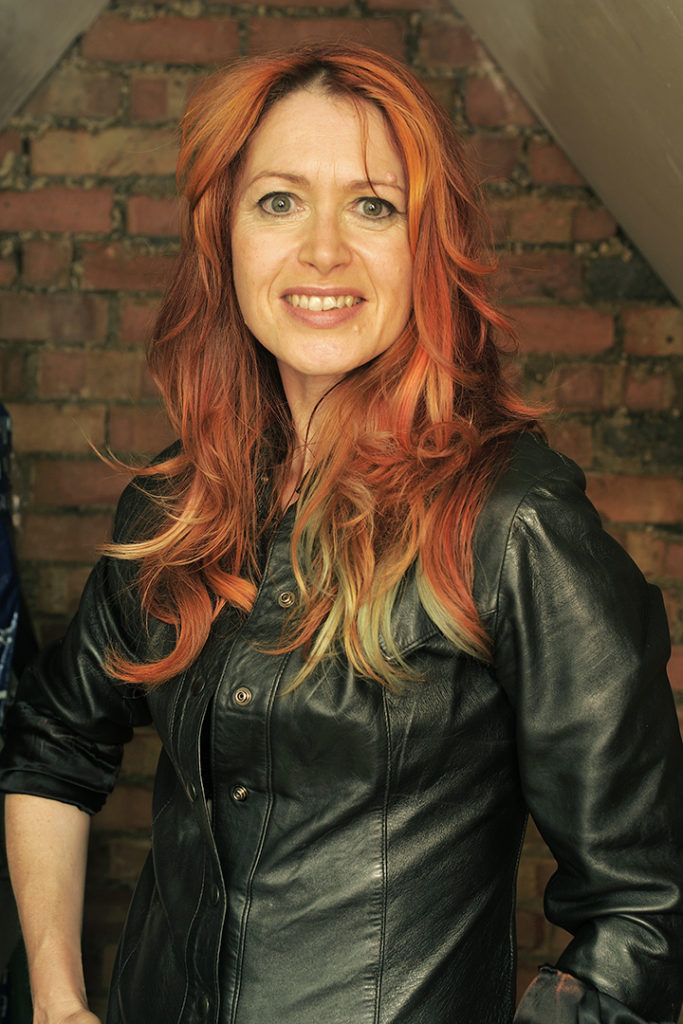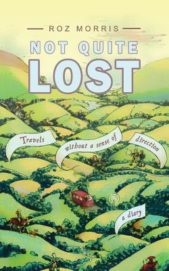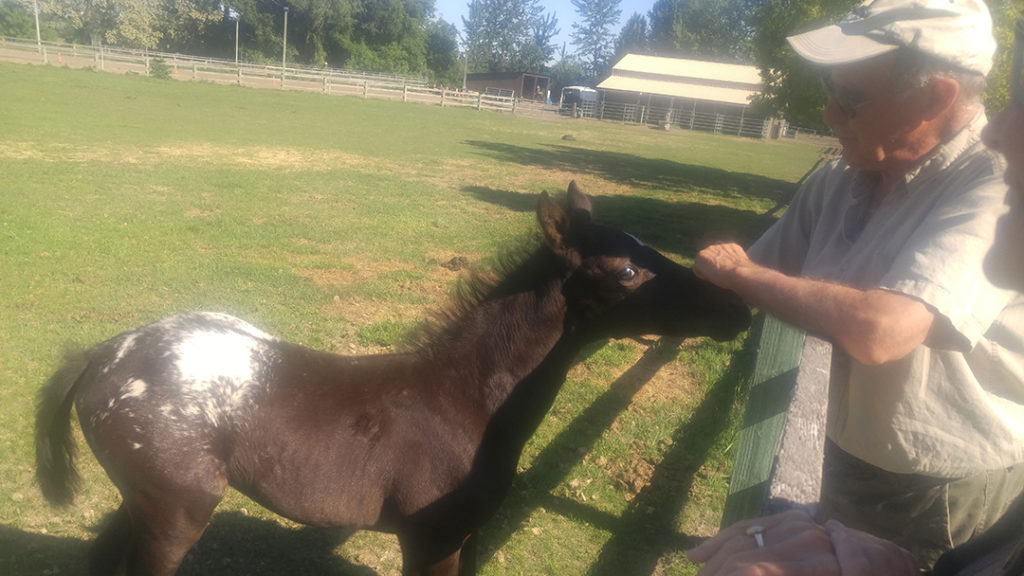
Charles Potts on his farm. photo by Paul E Nelson
Based in Walla Walla, Washington for decades, Charles Potts says he has "blazed a clear path thru the wilderness of the times I was fated to live in." An author of numerous volumes of poetry whose work first appeared in Wild Dog magazine in 1963, he's also been a publisher (of Litmus Magazine and a press of the same name, which published the likes of Philip Whalen, Amiri Baraka, Ed Dorn, Charles Bukowski, and others); an editor (of the anthology Pacific Northwestern Spiritual Poetry and the magazine The Temple, A postnational journal of spiritual elevation to create and maintain a state where the state has no jurisdiction); a curator/producer (of at least seven versions of the Walla Walla Poetry Party); and an author of creative non-fiction (most notably How The South Finally Won the Civil War, published by Tsunami, Inc. in 1995). In extra-literary pursuits, in the last decade he's become a breeder of Appaloosa horses. We spoke at length this past summer about his poetry, which I asked him to read several times during our session, so the reader of this interview can get a taste of this fine writer.
Paul E Nelson: How'd you sleep last night?
Charles Potts: I slept really well last night, if briefly. But my sleep pattern got interrupted early in March by waiting for a mare to give birth who was a full sister to a mare who had given birth two weeks early a year ago. Because horses tend to be similar to one another, I started watching her two weeks early. She didn't give birth till a week later so there was three weeks of sleep deprivation that was unnecessary to begin with, and then I had to go through the other foals that were being born and so forth. I had that chair over here by the window so I could look out at the barn and I have foal cameras and so forth.
PeN: Foal cameras? Cameras in the stable?
CP: Yeah, there are cameras in the barn so I can tell what's going on in there.
PeN: This is quite an investment that you have.
CP: Yeah, if you're a breeder of horses, getting a live baby horse is really important. I lost one once, and it's very difficult. An old friend of mine said he had seven this year and lost three. That must be really difficult. Losing one was bad enough, but I don't want to lose another one.
PeN: How long have you been doing this?
CP: Well I've been doing it this time around, I'm going on nine years at this point. But I went forty-eight years without having any horses. I had horses when I was in high school, and then we lost our ranch and had to sell everything at auction, and that included all my horses.
PeN: Was it just the economy that forced that?
CP: Well, it was the economy and the social deprivation/amalgamation of industrial farming, putting people off the land.
PeN: Tell us how your most recent book, Coyote Highway, came into being.
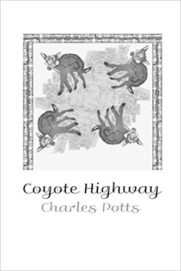 CP: Well I asked my publisher Bree if she would do it, and she said yes. Bree is a poet and an artist from Cleveland who was an admirer of my memoir Valga Krusa. I met her maybe fifteen, eighteen, years ago in Cleveland; she worked at a bookstore and she's a writer, a very good one, very peripatetic, energetic, she's kind of like a . . . I don't want to mischaracterize either one, but a female version of DA Levy in Cleveland. And she has lots of friends, lots of supporters. Anyway, she did both of my previous books, Pilgrim and Martel and The Source.
CP: Well I asked my publisher Bree if she would do it, and she said yes. Bree is a poet and an artist from Cleveland who was an admirer of my memoir Valga Krusa. I met her maybe fifteen, eighteen, years ago in Cleveland; she worked at a bookstore and she's a writer, a very good one, very peripatetic, energetic, she's kind of like a . . . I don't want to mischaracterize either one, but a female version of DA Levy in Cleveland. And she has lots of friends, lots of supporters. Anyway, she did both of my previous books, Pilgrim and Martel and The Source.
PeN: I would love it if you could read the title poem.
CP: I'll give it a go. I don't know that I've ever actually read it out loud to anybody.
Coyote Highway
(For Amalio Madueno)
The baby coyote scampering across the road
In front of me and into the wheat fields
Eternal coyote grin of the hanging tongue
I imagined on his face
On her face
A coyote has two faces
(So too the road going both directions
And nowhere simultaneously)
Janus and dramatic
The happy and the sad
Bisexual and two sexual
Scampering sin embargo
Nevertheless there should have always been
An embargo on sin
We have coyotes to thank
For making it stick.
Nevertheless time has found my tongue
Hanging on a key signature
Making it stick on frozen steel.
A few days before the Blue Creek Fire
The coyote pup got ran over
Almost exactly where I'd seen it cross
A few days earlier
In the Janus-in-July crunch signifying both
The beginning and the end.
For the rest of the summer I've watched
The coyote's tiny fur bearing body
Get impressed flatter and flattest
Into the pavement
Making it stick
Flatter than your father and mine
Both of them and all others
Becoming a coyote grease spot with hair
Over time by the over bearing weight of the wheels
Of a hundred fire trucks
Coming and going after
The Blue Creek fire
Driven relentlessly by over-dressed fire-proof
Department of Natural Resource men mostly
Pretending to be fighting fire snared
In a stronger force by orders of magnitude:
They were really fighting (and losing to) inertia.
2
The fire bifurcated my life into
Before and after the fire.
Before the fire the coyote's body
Sang in its sleep
The howling vocal chords of my signature
Yearning to merge with the magnificent
Tempo of geologic time.
After the fire
Which was a month ago
And feels like many years
The coyote is wearing out
His welcome to the pavement
Beyond the crushed paw of Lorca's
Kitten in New York.
The intermittent grease stain
Of the coyote surrendering and rendering its fat
To the artificial rubber of its meeting with the road.
I too disappear in stains
One revolution after another
Imprinted on the road
Every tire takes
An image of me around and around
The Mill Creek Road to Walla Walla
Blue Creek a burned out memory
Tributary to what now?
Houses, trees, buildings, grass, several thousand acres,
That used to belong to me, my friends and the animals
A thousand acres of my own pine and fir
Destroyed by a careless wheat farmer
Exporting topsoil.
This coyote is not starving
No Nezahualcoyotl in Nahuatl
This coyote is extinct
Extinguished temporarily by
Industrial strength transportation.
Nevertheless sin embargo
The coyote is stronger than death
And despite its disappearing act
Will outlive the road.
3
I did not expect to be impressed this way
Molecule by molecule into the asphalt
Spread out in the summer heat.
I have no idea what happened.
I don't know what hit me.
Suddenly everything was a blur of blood and pain.
I am now the watchman of this road.
I couldn't get up if I wanted to.
I don't have a leg to stand on.
I can't tell you how much this means to me.
I don't believe anything anymore.
With my mouth mashed down into the asphalt
It's hard enough to spit clichés out sideways
You would find it difficult too
If you no longer had any teeth.
But I've been thinking about it.
Dead as a coyote nailed
I have something to tell you
That has waited seventy years of summers.
You can't get off this road
The semi royal road to ruin
Non-parallel to the King's Highway
The Road to Cibola
El Camino unReal
Coyote Highway.
4
If you follow the Blue Creek Road
Far enough
You come to a black forest resembling
Pages ripped off Cormac McCarthy's
The Road.
Every tank of gas
Every bag of groceries
Every text is taken
Up with futility.
It's all going to burn.
I at least have become a permanent resident.
Not a citizen exactly.
I never felt like I belonged here
So I took up residence both
Above and below the law.
Alien by birth in my own time and country.
While I was gone the rains came
And for a while seemed to loosen
My grease into the aggregate
Nourishing the nearby weeds.
Since I can't get over it
I have to rise above it
To reassert my claim on the philosophic kingdom
My great uncle Neza set the standard.
A search for correlatives
Objective and otherwise
If a weed is a plant out of place
What then is an animal out of place?
But an orphan of philosophy
I am too short to trespass
My corpus delicti
Completely committed to a body
Still missing but still counting up the crimes
A formerly fur bearing weed
Speaks right into the mike
You can't let me any farther down.
PeN: Holy shit Charles, we have to find out about a devastating fire by reading your fucking poems, I mean it's crazy! I'm not one to share my tragedies, either. But I mean, you have a heart attack, you have a fire that destroys your whole ranch, and when I find out is when I start reading your book.
CP: Well, I'm naturally fairly discreet about that stuff. I used to write a lot of personal things—
PeN: Valga Krusa is an example of that.
CP: Yeah, if that book taught me anything it was to keep my mouth shut.
PeN: Oh, you got that out of your system fifty years ago, is what you're saying?
CP: I did. For many years I would hand copies of that to youngsters and say, "This is a cautionary tale. If you can't find at least ten things in here that you should never do, then you haven't read it correctly." And then there's the other part of that which is, as they're advising some of the miscreants in public office these days, you should really stop talking if you're about to go to court, and the first attorneys I had representing me and some of the other plaintiffs in this fire said don't talk about it. I wasn't planning on doing it anyway, although there are some things that I would like to bring up.
PeN: You dedicated the poem to Amalio Madueño; tell us about why you did that and about your friendship with him.
CP: Well, Amalio is probably the best under-appreciated poet in this country. I can say that without fear of contradiction, Amalio Madueño is a great poet and he should have many, many books distributed in all kinds of manners; instead he has to crank them out more or less by himself there at Ranchos Press [his own imprint], although that's not a bad idea in many ways because if you're publishing your own books, you're in control of the process. Amalio, he is just a super, super, intelligent, musical, sensitive individual. I had no idea how important he was when I went to the Taos Poetry Circus, which was a year after my first heart attack—I thought, I'm going to go down there, I better go down there before it's too late. I don't know how the Taos Poetry Circus was put together, but I get the impression that he was pretty much the engine room.
PeN: For about ten years. And it was a production, it was a show.
CP: Yeah, it was kind of like entertainment of a sort. I don't mind that poetry turns into entertainment at one level, because they had big crowds. It was probably one of the most important series of readings that ever took place on this continent. And the guy who started it, Al Simmons, he is a great writer himself. And he started that stuff in Chicago.
PeN: Right, Mark Smith sort of took his method and turned it into the slam, which has its own story.
CP: Anyway, I enjoyed Amalio's presence and his poetry and I've reprinted a lot of it, published it in The Temple magazine when I was doing it again.
PeN: "Coyote White Tail War" is the next poem I'd like you to read. I think that reading the poems gives us the background for understanding the deeper picture which will emerge after I ask a question about that.
CP:
Coyote Whitetail War
Let's imagine one side
Never completely wins
Taking sides rends my being
How anyone could have ever
Described this nature as a balance
Juggling from a great height
The appealing solo participants
Both sides lose way more than enough
To vulcanized artificial rubber
The fast chew of the fawn jaws
Adumbrates the rest of their speed
The cruel chew of the coyote's teeth
Making peace is never going to happen
PeN: I look at your facial expression when you read that first couplet, and the look on your face is like, come on people, this is what's happening. There's a nihilistic undertone to all of this.
CP: I don't think nihilistic is . . . I think there's a realistic tone to it. I am a realist.
PeN: You're a glass half empty kind of guy?
CP: Well, it's not half empty—the glass is empty, it's full, it's broken, it's not even there, you can't get a drink, you're going to die of thirst, it's whatever.
PeN: Says the man who's had three heart attacks and watched a thousand acres burn.
CP: There's a lot going on there, the little successes that individual actors, a fawn, a coyote, you, me, our children, the little successes we have are all on a pathway to personal oblivion. I admire natural history in a big way and I think that cultural history, that is to say the people part of it, is pretty much irrelevant to what the earth is doing. But the book never got as much attention as I wish it had.
PeN: This book?
CP: No, a book I wrote called Nature Lovers—it's a satire on nature lovers in a sense, and there's an afterward in which it's a paean to Wordsworth's "Ode on the Intimations of Immortality." What I think Wordsworth was getting at is there was a time when birds, beasts, and flowers seemed apparelled in celestial delight. Nothing can bring back that hour "of splendor in the grass, of glory in the flower." The way we used to feel about things as children, when it was all very delightful and beautiful and our parents were lying to us about how great it all is. That's really not about personal development. Now I think there's no way to bring back that once upon a time, before we became chimpanzees with a gene for speech. We're no longer part of natural history. Language has separated us from natural history, we're cultural history now. I think that insight, and I attribute it to Wordsworth, really matters.
PeN: Next up is "Coyote Stretcher" or as you'd say, kiot stretcher.
CP:
Coyote Stretcher
Dad had three or four
Coyote hide stretchers of various sizes,
A cross between a surf board
With the shape of an ironing board,
Fur side in for drying hide turned
Fur side out for later sale and display,
Pointy nose at the tip
Face minus the philosophical eyes,
A Coyote tube with empty throat
From which no call further comes.
Spreaders at the hind end,
Some Coyotes are thicker than others.
PeN: (Laughter.) And the purpose of stretching the hides is to sell them . . .
CP: Well, it's to dry it evenly to make it as big as it gets. If you just skinned the Coyote and had the hide laying around on the floor, it would wrinkle itself out. While it's still moist within probably 24 hours from the time it's removed from the animal itself, it's placed on the stretcher.
PeN: And the reason for retaining these hides, is—
CP: Selling them, for fur. My dad was a trapper. He was paid by the federal government to trap beavers and he trapped other stuff, freelance. There's a little poem called, "Hide" an old poem of mine, do you know it?
PeN: I may have seen it, yeah.
CP: It's germane to this discussion here and I think I know where I can find it.
PeN: If it's in The Portable Potts, I've read it yes.
CP: Yeah, I'm sure you've read it and it's . . . if I could put my hands on it and . . . in a large book like this, it does matter to have pages, this has 258 . . .
Hide
I am a boy again,
Riding shotgun in a black and red
1948 Dodge pickup with my dad,
Crossing the Arco desert
With our cargo of cured hides.
My father was a government trapper
And I'm a government trapper's son.
Halfway to the hidehouse on
Yellowstone Avenue in Idaho Falls,
We plow through an Atomic Energy Commission plot.
The mink, the muskrat and the coyotes,
To say nothing of the beaver,
Have turned themselves inside out
Into Levi's I might get to wear,
Clean new clothes to school
With the animals under my skin.
PeN: Wow. Let's do "Shakespeare Was in Real Estate, and I'm Buying a Farm."
CP: This was supposed to be a song. If I had more talent . . .
Shakespeare Was in Real Estate and I'm Buying the Farm
Shakespeare was in real estate and I'm buying the farm.
Every day I die a little; every day I live a lot.
The Enlightenment presents a challenge to learn how to think for yourself.
I go deeper into debt and by inversion think I can turn my money into dirt.
Blue Creek sings as it slides over rocks it hasn't quite yet washed
Out from under itself, particles adhering to one another like
Molecules of H2O have to to avoid puddling up:
If there's enough of us and a slope it's all downhill from here.
Then the ocean waves us back toward the beach we thought we'd left
Intact as the land's edge, land's end, land's creepy disappearance
Under water so big it's hoarding salt
Never mind the minerals in suspension that make up the earth.
The earth is not a made up thing.
It was put together by force.
The force that brings the human mind to attention.
No suspense in that.
The dirt by water becomes boot sucking mud
That drags the feet into itself at great depth.
The drought is everywhere and still we're all surrounded by
Wastrels at the village water trough and well.
How steadily the decline of the west slants
From Shakespeare into mud.
PeN: (Laughter.) These pithy endings . . . I remember your book How the South Finally Won the Civil War and Controls the Political Future of the United States which has only proven to be more true as we see the people running this country. . . First of all, "every day I die a little, every day I live a lot." This is evident, you could tell just by the beauty of this place and your love of animals and to see that month-old colt bound around near the end of the party last night.
CP: Wasn't that amazing? It's why I do it. You see a little horse at full tilt, you know it's okay.
PeN: A month old, not even a month.
CP: Oh, she could do that when she was three days old. Her balance wasn't as good at three days as it is at thirty. But the speed was there, and the desire. And then when they lay down to dream with their head flat on the ground to have REM sleep, if you can get close enough to them without waking them up you can see their eyes fluttering. And they're dreaming about running, I know they are.
PeN: And then there's a line in this poem, "The force that brings the human mind to attention." What are other phrases or names for that force in your mind?
CP: Well, it's kind of like gravity and centripetal force. One of the consequences of aging and losing my hearing, I'm also losing my sense of balance. There's a poem in the book Slash and Burn called, "Gravity." I talk about how gravity holds me up and keeps me pinned to the earth because you have only seven degrees that you can walk around it. My favorite line in that poem is "the earth is not a made up thing"; I felt like I was channeling Robert Duncan when I said that. I like Duncan a lot.
PeN: You live in Walla Walla, and there is a very palpable, traditional, religious, sentiment and community here. "The force that brings the human mind to attention" might be described by locals as God, or divinity, or some kind of . . . Charles Olsen in the essay, "Projective Verse" used the phrase, "the single intelligence."
CP: There's a lot too what goes on here and on the planet earth that is not available in this galaxy, move along. There's a poem in this book called "Auden in Egypt" which is more like how I really feel about it. What I dislike about theology is that people . . . I can forgive them very easily because I know how weak people are . . . but they give up. Now I'm really excited for this year because it's the 500th anniversary of Martin Luther. Martin Luther's premise was Catholics are wrong about one thing. My premise is Catholics are wrong about everything, and these are the papal states of America. Five of those assholes on the Supreme Court of the United States are Catholics, three of them were personally recruited by a Catholic named Leo who finds these judges and passes them along to the Republicans because they're . . . what Luther did was released information to the general public, that's what the Reformation was about. The Catholic church was wrong about Copernicus and Galileo, they're also wrong about Freud and Marx and Darwin and Einstein and everybody else . . .
PeN: So your issue is with religion.
CP: Theology. Blocking the path to information.
PeN: Yet the force that brings the human mind to attention, if we throw all the religion out, there's still some kind of divinity, there's still some kind of good, there's still some kind of intelligence there that obviously is informing you in some way.
CP: Well, I think it's dazzling in many ways. We're a tiny little relatively insignificant part of, if we could just figure it out from our end instead of mumbling about our inadequacies to some divinity, I'd be a lot happier with my fellow creature.
PeN: "Midnight Equestrian."
CP:
Midnight Equestrian
He was a promising intellect
A Passionate advocate for
Good public policy
A poet with world class
Ambition;
He turned it all in
For a handful of horses.
(This was composed the evening of the day
He caused his second heart attack, May 30,
Which didn't manifest itself until June 11th.)
PeN: We could see that on a tombstone. I guess that's a devastating fire and your third heart attack might make you think about death a little bit.
CP: Mm-hmm (affirmative). I read this little poem the night before when I was doing my little epigrammatic stuff; everything we are and everything we hope to be, we owe to horses.
PeN: Which leads to the next poem I'd like you to read, "The Naming of Horses."
CP:
The Naming of the Horses
Each horse deserves a name as exquisite as his or her soul
Since you will be saying them over and over again
Make them beautiful as only horse souls are.
Shandalupa out of Patchy by Foz
Is a Chinese mountain merged into an Arabian desert
On the Celtic peninsula of Iberia.
Shan-andalu-pa
We sing the praises of the distances you've come.
Pahsimeroi is a river
And a valley
With a single grove of trees
Where my great grandparents
Robert Latreille Jones and
Cora Florence Lewis Jones
Homesteaded in the 1880s near Goldberg.
Fudasan is a filly with the feminine mispronunciation of
The Japanese word for real estate
Fu-doh-san for products that don't move.
Born not much bigger than a rabbit
Fuda moves her hooves across the real estate
In English her name is Flying Spider.
PeN: And the little colt's name here?
CP: The colt's name is Waatnuwas.
PeN: How do you spell that?
CP: W-A-A-T-N-U-W-A-S. I dropped the S, but it means spirit seeking place. It's Sahaptain Indian.
PeN: Amazing. I was recently asked to read for a whole two minutes at a party, and I thought I've got time for two short poems, one by McClure from his new book, which I have in my bag and I can read to you later, but then I also read this next poem, and I tried to channel my inner Charles Potts when I read it. The party was in Seattle on Capitol Hill, so imagine an audience that's not particularly religious or theological or however you want to say it, but it's this poem here, "The Hermiston Horse Sale."
CP:
The Hermiston Horse Sale
Standing in front of steel stud pens
A man and his son from Elkland, Missouri
Inquire about the bloodlines of my horses.
Preliminary to flashing me
His holier than thou card
The father says with grey beard earnestness,
"May I ask where you worship?"
Up to my knees
In horseshit and Christians I reply,
"Right here where I'm standing."
CP: It is true. It's not made up.
PeN: And this is the way you worship.
CP: Yeah.
PeN: And anyone who's heart is working half way can see that, don't you think.
CP: Yeah, they should be able to.
PeN: So what you're saying here, in pure imagery, is that your religion doesn't seem to be working if you can't recognize this.
CP: Right, yeah. That's a good way to put it.
PeN: It's what I get from it! Because you can see if you have basic human perception. I almost thought this should be the first thing to read, so people can get a sense of your wit and your ability to nail down a poem. I think the next one is, "The Well Fed Horses of Du Fu." Now before we get into this, you lived in Japan for a year with your wife and daughter and you're very interested in Chinese poetry; you brought Chinese poets here to Walla Walla and to Seattle. Can you tell us when you first developed an interest in Chinese poetry?
CP: I did some Li Bai translations with a really fine poet named David Wang, who passed away very young. He was from New Mexico. He used to do poetry readings with people performing martial arts behind him. But actually my interest in Chinese poetry came from a guy I don't often give enough thanks to, Ezra Pound. With David I also rendered a poem called "Changsha" that Mao Zedong wrote; it's the title poem of Mao's most important book of poems. He was a great poet, and the right person for the revolution, just the wrong executive to try to keep running it, not that he got any help from the assholes who ran our system. They might just as well have moved into China with the Marshall Plan in 1950.
PeN: My dad said, "The Chinese will take us over without firing a shot."
CP: Or everybody's favorite line: we'll surrender to the Chinese in Spanish. Here's the poem:
The Well-fed Horses of Du Fu
in Wuling their robes are light and their horses well-fed
—Du Fu, translated by Red Pine, from Poems of the Masters
Turns out on closer examination that the horses
In Du Fu's "Autumn Inspiration II" are not
Du Fu's at all but those of successful old friends from his youth.
I should give up a million dollar title
For the granular truth?
I hear my horses dancing on the land.
When I was sixteen in 1959
Bankruptcy was circling in on my family
Forced to sell at auction
Our ranch and everything on it
To satisfy Republican creditors driving
New cars and wearing new clothes
(Such as "light," ie silk, robes as in Du Fu above).
Everything on it included
My horses.
48 years without any horses.
Eight years ago I bought four and
Spring of 2016 I will have five foals.
I am still deep in debt
Successful enough, in a banker's opinion,
To feed my horses well.
PeN: Living well is the best revenge huh? I've written two more poems to potentially read but I'm thinking one more; I'll give you the choice whether "Windy One Week Out," or "Palo Duro Sunrise."
CP: Let's do "Palo Duro"—it's not as successful as a poem, but it's very important material.
Palo Duro Sunrise
8:00 AM March 10, 2015
The red edge of the disk surfaces over
The thinly fogged horizon.
Rising to sphericality the still red sun
Accelerates over Texas.
At the end of the road an equestrian trail
Leads downstream on the Prairie Dog Fork of the Red River
Towards the battle site
Where afterward Ranald Slidell Mackenzie,
First in his class at West Point, 1862,
Youngest brigadier general in the Civil War,
Killed nearly all the horses captured
From Quanah Parker and the Comanches.
Next day I feel I am walking directly into the sun,
Over the fence, out of the park,
Keeping my eyes down on the trail looking for the horses.
The sun is too beautiful to look at.
Peeling from the dead branches of cottonwood,
Bark soft enough to make a babies bed.
Bad Hand Mackenzie
Before he committed suicide
Was out here doing scut work against the Indians for
Ulysses S Grant and William Tecumseh Sherman.
Beyond scorched earth to toasted horses.
The horse of my enemy is my enemy.
I toast the horses one more time:
When you run out of Confederates
Indians and horses to kill
You have to kill yourself.
PeN: I was going to ask you how does it all end, but you already said that. It's us surrendering to the Chinese in Spanish. But it is the fate of all empires to go down—
CP: Oh yeah.
PeN: And Morris Berman figured that we were in the final stage of empire twenty years ago, and now we've got El Caudillo Analfabético as our illiterate strong man leader. So what happens? You've studied the history enough to know what happens. What is the fate of all empires and how does it manifest?
CP: Well, there's an algorithm for how empires disappear and it's based on the size of the asset base, how intelligently the asset base is managed, and the quality of intelligence of the leadership. Unfortunately for people like me who would like to see this empire end yesterday, I don't think it's anywhere near the end. Because we're at a point where we assimilate a little bit. Like the Roman Empire . . . I have two competing ideas about how this takes place. Toynbee, who was right about almost everything except Chinese history, thought that the Chinese had gone away. The Chinese operate a system like a pulsar. They put together a dynasty, the first half of a Han, lasts for a couple hundred years, and they fall apart, and then there's a second half of the Han, lasts for another couple hundred years, they go in for a warring state period and that preoccupies them for sixty or seventy years, and then the Tang dynasty shows up, and it lasts for almost three hundred. And then it falls apart, and then there was a period of chaos and bullshit, and then the Sung dynasty comes on, it's for two or three hundred years. And this one that's going on now, the Mao dynasty as I refer to it, it's still got two hundred years to run. The Chinese are going to be . . . I wrote a poem the other day that said, "Mars belongs to the Chinese." So the Chinese operate on a pulse. Our system is more or less linear.
PeN: You mean the U.S.?
CP: Yeah, the U.S. system. The Roman Empire put together in its ultimate form by Augustus and the Augustinian age lasted for about a hundred years, and it came to a halt with a Trajan who was born in what we now think of as Spain who spent his entire eighteen years as emperor out in basically Romania, hassling people. He conquered the Tigris-Euphrates valley. He was only emperor to go to where the emirate of Kuwait is, he tried to operate clear out there. He couldn't do it, spent his whole time out there just fighting one battle after another . . . because just like anybody else that you run over, you know there's a few guys left standing saying, "Fuck this." And they'll just resist you, they'll sabotage you, they'll hassle you, they'll steal your food—
PeN: They'll put bombs on their back and . . .
CP: Or as Mao would say, "The enemy is the source of supply." Let's just takes these horses from these Romans while they're asleep or whatever. And Trajan was succeeded in office by Hadrian, who understood that empires have limits. He said over here, anything that goes beyond the Danube River is out of our fucking control, skip it, let it pass. And that's the line there. They abandoned the Tigris-Euphrates, said in the north, the limit of the Empire is the Rhine. We're not going to go beyond that, we can't manage it from here. The supply line gets too big and so forth. He built a wall in Scotland to keep the Scots out of England. He knew where the limits were. And so the Roman Empire stumbled along for a couple hundred years under Hadrian's principles. Then it fell to a guy named Diocletian, who divided it into quadrants. He had a sub-emperor for the Iberian Peninsula, Gaul, and England, he had a sub-emperor for the Italian Peninsula, he had one for the Balkans, and he was in charge of the shit in the East—he was from Constantinople, we would call him a Turk. I see a touch of Diocletian-ism with the Western United States Empire being Washington, Oregon, California, and Mexico, just kind of operating independently of Washington DC.
PeN: That's amazing. I think a better way to end the interview is with that other poem that I wanted you to read.
CP: OK.
Windy One Week Out
It's been a week since Windy died
Her chin whiskers protruding beyond her lips
That will never nurse
Nose that never breathed
Fresh air
Her eyes were closed
An air of peace surrounded her
Before the sand and gravel of her grave
Pinned her down in thrust position
Hind legs extended to the max
Front drawn up as if leaping
Into the hard space of tomorrow
We bring the dead with us
Until they become
Too heavy to handle.
Inside every living person,
Especially the elderly
But some youngsters have it too,
Is a walking mausoleum
Of the dead:
Parents, siblings, friends, relatives, and
The famous dead like Kennedy and King.
Joining this parade of past tense witness
I have a baby horse inside me.
PeN: Thank you, Charles.
CP: Thank you!
Click here to purchase Coyote Highway
at your local independent bookstore

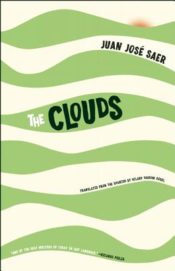 Juan José Saer
Juan José Saer
